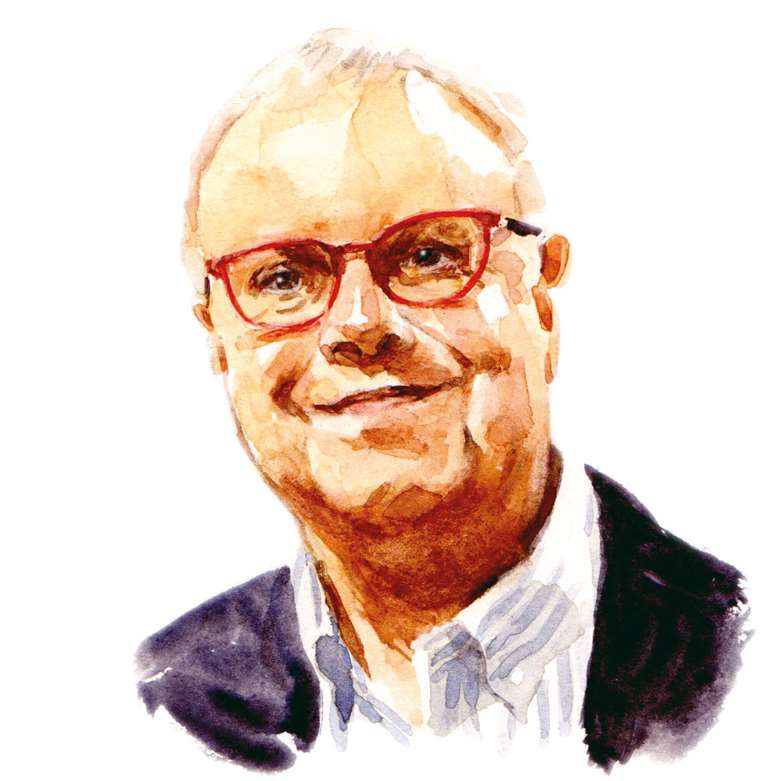A letter from America: Dallas
Scott Cantrell
Thursday, October 24, 2019
Scott Cantrell reports on the richly varied musical offerings in his Texas home town

Few people outside what’s been dubbed the Dallas-Fort Worth Metroplex realise that it’s the fourth-largest metropolitan area in the United States. With more than 7.5 million residents and a healthily diversified economy, it’s also one of the fastest-growing.
Visitors are also surprised to learn that Dallas’s downtown Arts District has some of the finest performing-arts facilities anywhere, designed by distinguished architects, with excellent – and effectively adjustable – acoustics. The Meyerson Symphony Center, the only concert hall designed by the late IM Pei, with lush acoustics by the late Russell Johnson and his Artec Consultants, celebrates its 30th birthday this autumn. Adjacent are the 10-year-old Winspear Opera House, by Foster + Partners (Bob Essert, acoustician), and the 750-seat Moody Performance Hall, by the Chicago office of SOM (with acoustician Mark Holden), opened in 2012. The district also includes the multiform Wyly Theatre, by Rex/OMA (Joshua Prince-Ramos with Rem Koolhaas), Booker T Washington High School for the Performing and Visual Arts, the Dallas Museum of Art, the Nasher Sculpture Center and the Crow Museum of Asian Art.
To watch the area’s arts scene over the last 20 years has been to marvel at new facilities, but also at the artistic progress of performing groups. It says something about the dramatic advancement of the Dallas Symphony Orchestra under music director Jaap van Zweden, from 2008 to 2018, that the Dutch conductor was snatched up by the New York Philharmonic. He’ll be succeeded by Fabio Luisi, whose European commitments are requiring a gradual takeover. Luisi will conduct five concerts in 2019-20 and seven the following season before taking full possession of the orchestra. Already, programming for the 2019-20 season looks considerably more interesting than any other in memory.
The Dallas Opera has had its ups and downs in the last 20 years but seems poised for an upswing under the experienced Ian Derrer, who took over as general director and CEO in summer 2018. The French conductor Emmanuel Villaume continues as music director.
In Fort Worth, 35 miles west of downtown Dallas, Miguel Harth-Bedoya has transformed the formerly rough-hewn Fort Worth Symphony into an accomplished ensemble and programmed far more daringly than his Dallas counterparts. In an area with a huge Latino population, the Peruvian-born conductor has programmed numerous works by Latin American composers and hired a succession of Latin American assistant conductors. But after 20 years in charge, he steps down at the end of 2019-20. This is an orchestra ripe for greater interpretative cultivation; one hopes the right conductor is picked to take it to the next stage.
The FWSO plays in the 21-year-old Bass Performance Hall, a multi‑purpose facility designed by David M Schwarz in a retardataire style mingling everything from Viennese Secession to art deco, with giant Jello-mould trumpeting angels on the facade. Acoustics, by Paul Scarbrough, can be adjusted for excellent results with orchestra as well as opera and even solo piano. The hall is also the site of the quadrennial Van Cliburn International Piano Competition, whose sponsoring foundation presents main-season concerts there and at the Kimbell Art Museum and Modern Art Museum of Fort Worth. Fort Worth Opera presents mainstage productions at Bass and smaller-scale works in a variety of alternative venues.
Fort Worth Opera was an artistic, administrative and financial mess when Darren K Woods took over as general director in 2001. In 16 years he dramatically improved vocal and theatrical standards and attracted national attention with a series of world premieres and other new and often provocative operas. But he and the board came to a parting of ways in 2017, and the company hired Tuomas Hiltunen, who’d never run an opera company, as his successor. Music director Joe Illick was promoted to the position of artistic director. The company has cut back productions and still seems to be finding its way.
Both the Dallas Opera and Dallas Symphony have inaugurated bold new programmes to cultivate and promote female conductors, who, despite larger numbers coming out of conservatory conducting programmes, still face career obstacles. Established in 2016, the opera company’s Linda and Mitch Hart Institute for Women Conductors each year selects six main participants, and additional observers, for coaching conducting and rehearsal techniques, plus sessions on career development and other concerns. They rehearse with professional singers and the Dallas Opera Orchestra, and conduct in a public concert at the end of the two-week institute. Among the leaders is Nicole Paiement, the company’s principal guest conductor since 2014.
Overlapping with the Hart Institute, the DSO will inaugurate its own Women in Classical Music Symposium in November. It will include no performance opportunities but will offer workshops and panel discussions on career issues. Participants will attend open rehearsals and a concert led by the DSO’s new principal guest conductor, Gemma New, from New Zealand. Four other women are scheduled as guest conductors in 2019‑20. The DSO has had an impressive history of hiring female assistant conductors, but New is the first female principal guest, in a programme planned to appoint a succession of women to that post. A composer-in-residence programme to promote women began with the 2018 appointment of Julia Wolfe.
Leading the DSO’s new initiatives is president and CEO Kim Noltemy, who arrived at 2018 with an impressive résumé from the Boston Symphony. Keith Cerny, who preceded Derrer at the Dallas Opera, now heads the Fort Worth Symphony – and its search for a new music director. With so much new leadership in the area’s leading orchestras and opera companies, stay tuned for more changes and new initiatives.











